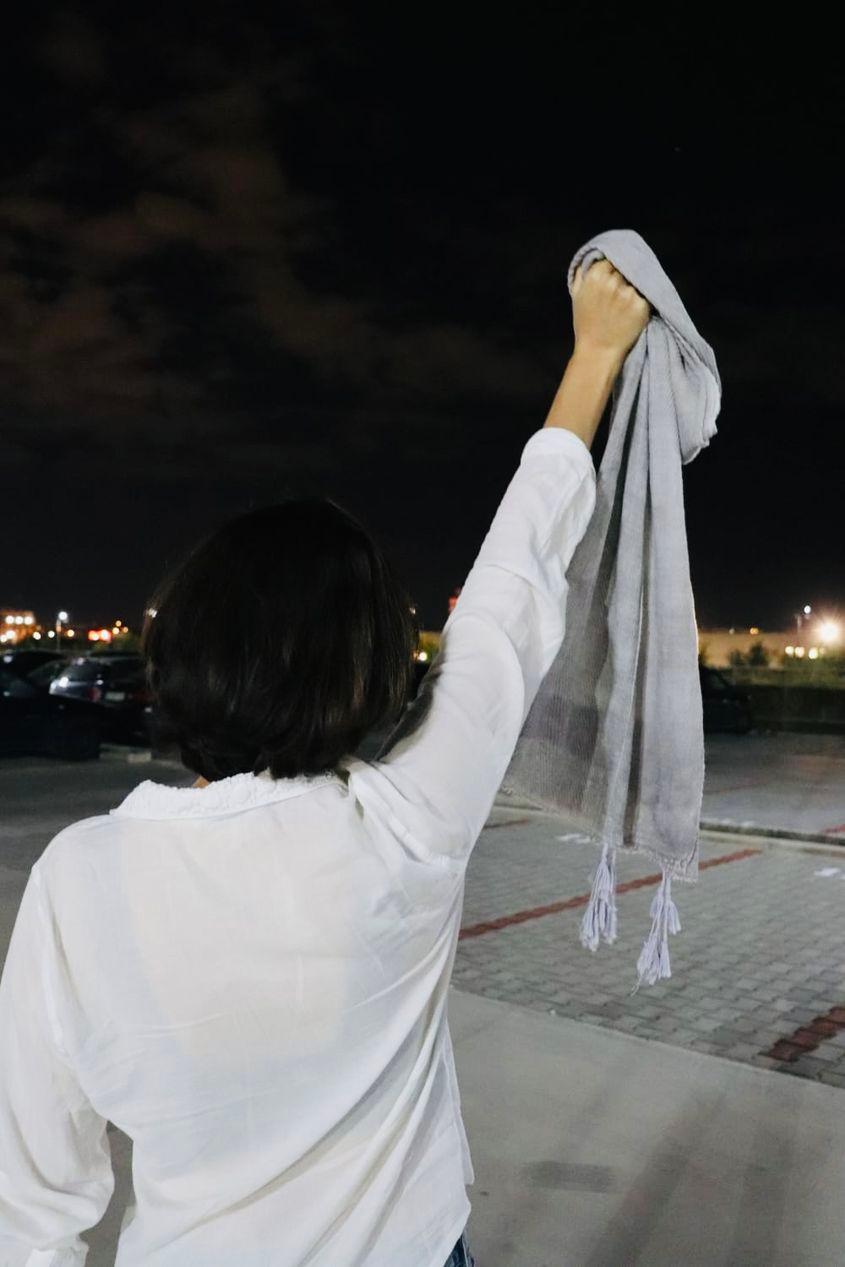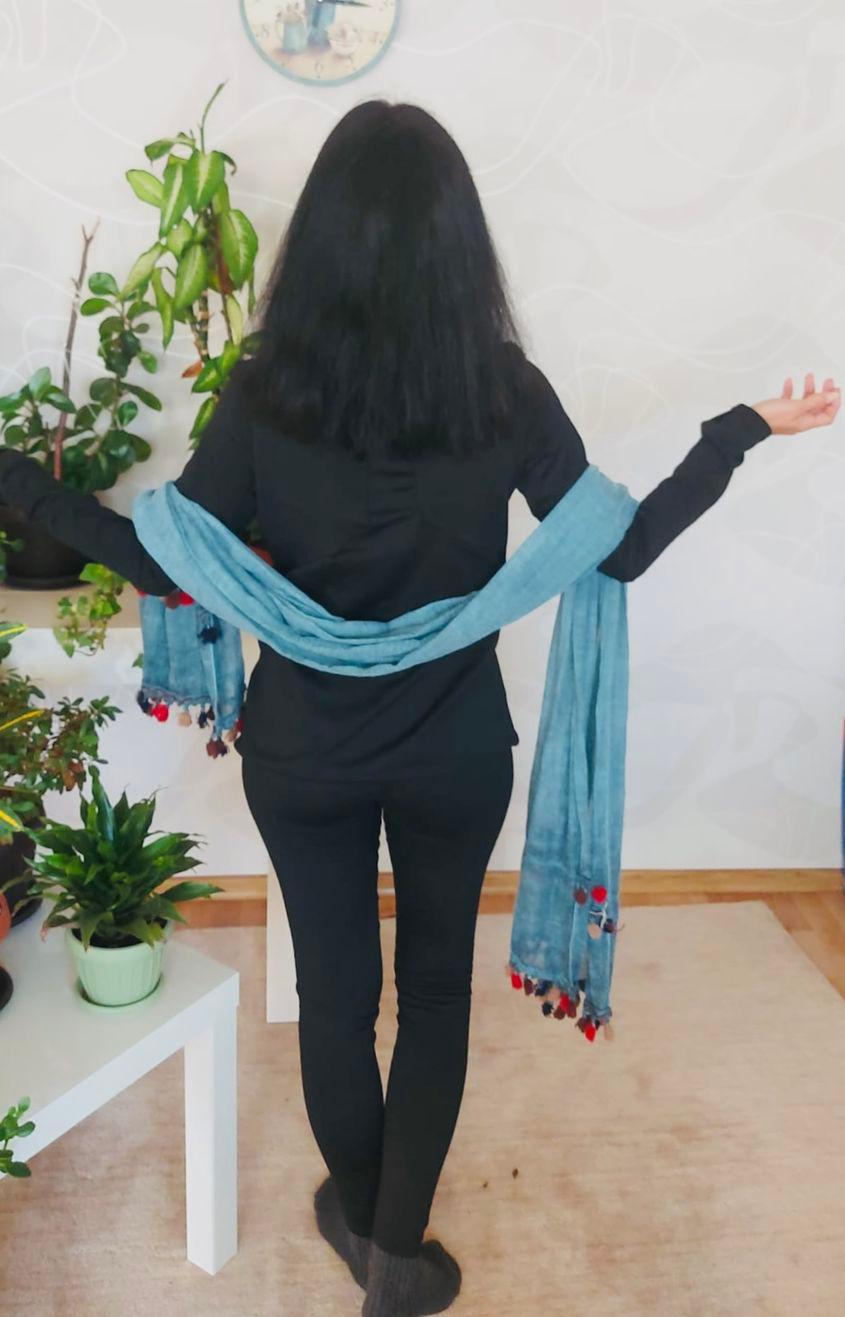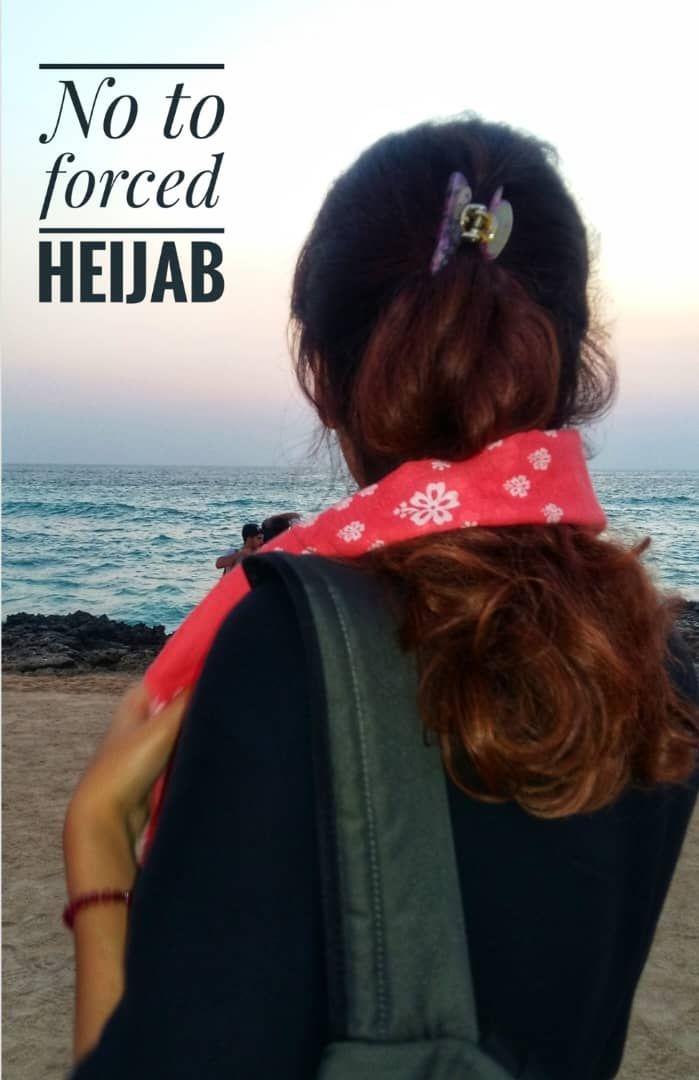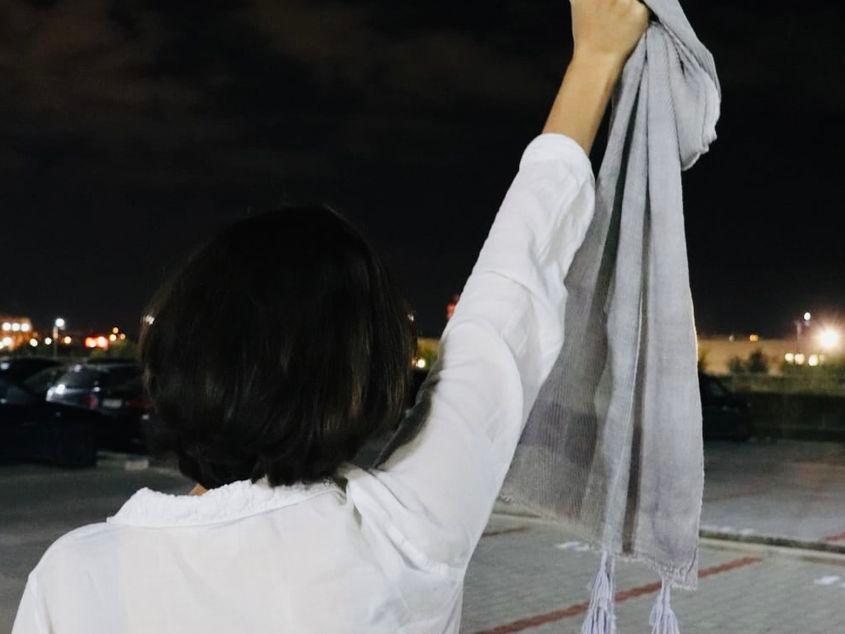
26/09/2022
Iranian Women Living in Romania: "Any woman can be arrested by the morality police. They can beat you to death"
A week ago, the death of young Mahsa Amini, who was picked up by morality police for not wearing a hijab "properly", triggered a new round of violent protests in Iran, which have already left at least 40 people dead.
More than 3000 km away, in Romania, the Iranians living here are terrified for the safety of their families and friends back home. And for the women, it's even more painful: here they have found freedom, but they have never forgotten what an encounter with the morality police means and how hard it is to be a woman in a theocratic dictatorship.
The testimonies below are the voices of the Iranian women in Romania, who are now watching helplessly from afar the new bloody protests in their country.
"Watching is not enough"
For several days now, Iran has been without internet - a similar scenario to the protests of 2019, the so-called "Bloody November". Then, between 1,500 and 3,000 people died in clashes with the police, and the country was completely disconnected from any access to information for a week. The huge number of casualties did not bring any consequences for the regime in Tehran, except a few sanctions on individuals.
Mahsa Amini was 22 and few Iranians believe the official version of events - that she suffered a heart attack or stroke. Her family claims that she was beaten to death by the morality police.
We want to be able to report on all the significant events happening in the world. If it's important to you too, help us get it done! Every donation helps.PressOne Editorial Staff
Meanwhile, Iranians in Romania want to give a voice to their countrymen, who have not heard from since the country was left without internet again.
Mulți ne citesc, puțini ne susțin. Fără ajutorul tău, nu putem continua să scriem astfel de articole. Cu doar 5 euro pe lună ne poți ajuta mai mult decât crezi și poți face diferența chiar acum!
They tried to organise a protest, but quickly gave up on the idea because, according to community representatives, in the past the Bucharest City Hall has always given them permission only for very small groups (10-15 people), in neutral spaces, not near the embassy. "This is a party, with 10 people," community members comment sardonically to PressOne.
Several Iranian women living in Romania spoke to us about what it's like to meet the morality police, how hard it is to be a woman in a theocratic dictatorship and about what these protests mean for the future of the country.
None of them wanted to use their real names. They fear they will be identified by the authorities and not allowed to enter the country anymore; most of them still have family and friends there.
Many of the women - who have left the country for jobs in Europe, but also for freedom - have compared the regime in Tehran over the past 44 years to the Taliban regime in Afghanistan, particularly in its treatment of women.
Iranians feel alone, isolated and lacking the same support from the international community as, for example, Ukraine. They feel that the abuses of the Tehran regime are only superficially condemned internationally. And women are disappointed that European female politicians are complying with the hijab-wearing rule in meetings with Iranian officials, which validates the government's imposition of hijab-wearing on all women in Iran.
Predator in Robes: The Diocese of Iași and the Vatican Buried a Sexual Assault Committed by a Catholic Priest Against a Minor in Bacău, Failing to Alert Prosecutors
A Roman Catholic priest abused a 13-year-old girl in the parish where he served in Bacău County: the bishop of Iași knew about it, sent the case to the Vatican, and applied canonical sanctions, but did not notify the authorities, who only intervened later and sentenced him to prison.
"Watching is not enough," Bahar, a 30 year old woman living in Bucharest, says. "These protests are one of the most important fights for human rights in the world, but they are not in the news."
Bahar, 30 years old, engineer
Un newsletter pentru cititori curioși și inteligenți.
Sunt curios
I feel depressed to see my people being killed in the street. I want to do something for them, I want to help them, but I don't know how. I feel exhausted because of the regime's reaction. They are killing people for no reason. In 2019, they killed 1,500 people in less than 10 days. Now, it's happening again. The protests are in all the cities. I have my sisters and brother protesting in the streets.
One of the encounters that Ive had with the morality police was when I had my 25th birthday and we had a party, men and women together, inside our private garden. The police came and stopped the party, because in Iran it is forbidden that men and women hold hands or dance. They took my boyfriend to jail, because he was known as organiser of this party. And then he was in court for nine months. It's against the law to have a boyfriend, it's against the law to hold hands without getting married. You have to wear a hijab, it's not your choice what you wear. What is happening in Iran is not a match that lit all of a sudden. it is the result of them not respecting human rights, especially women's rights, for over 40 years.
For European women, it's something that seems insignificant. Ok, it's just a hijab. But it's a human right to choose what you wear. After I came here, I realised it's different to go to the sea without a hijab. To feel the sun on your skin. The wind in your hair.
It's hard to explain how little happiness means. I would have liked to understand that when I was 10 years old, because in Iran you have to wear a hijab from when 7 years old, when you start school. If you don't wear a hijab, your education will stop.
Any woman can be arrested by the morality police, and what happens after is unclear. There is a chance that they may beat you until your death.
Maryam, 52 years old, graphic artist
Here, in Romania, I can leave the house at 6 or 7 in the evening, or at 12 at night, and be ok. I go on my way and come back healthy. But in Iran, if it's dark, girls are not allowed to go out, they are in danger. Girls and boys are not allowed to meet and talk. They've been separated since primary school, only at university they go to school together.
Girls have to wear headscarves. Those who wear the headscarf down to the ground are looked at differently, they can get a job.
I couldn't continue my studies at the state university, I had a "political" family. My brothers, after the revolution, were against the current regime. One of them spent eight years in prison. He was 18 years old. The other spent two years in prison and died there.
Three years ago, 1,500 people died, and nobody said anything. Now, my friend who lives in that country sent me a video from near her house. She said: it's like war. The ambulance couldn't get in where people were shot, because of the policemen. I have a video of a young boy, he was shot in the head. If they don't kill them, they put them in jail, they do a lot to them there, they rape girls…
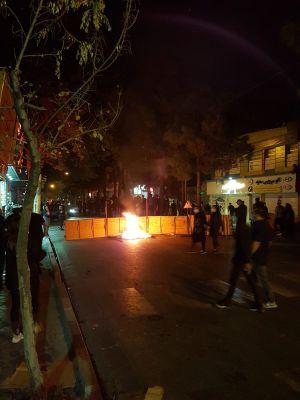
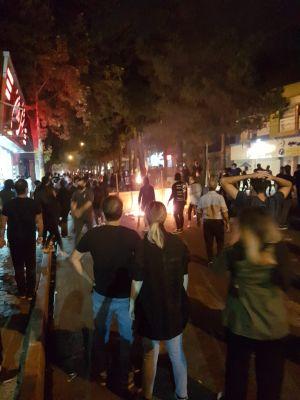
Photos Maryam received from her family and friends in Iran
We want to help them, because without internet, they don't have a voice. We want our voice to reach a lot of people now.
Shiler, 40 years old, accountant
We came to Bucharest because of the freedom, because of the equal rights between the men and women. I have two children, now 13 years old, and the situation in Iran is not good for raising children. Religion is mandatory and you can only be a muslim. Humans deserve to choose their religion. I am not a muslim, I have a different religion, I am Yarsani (religious minority unrecognised by the government in Tehran, n.r.).
I had two encounters with morality police. Once because I was wearing short trousers and they pulled me into a van and they forced me to put something on and then they let me go.
The second time, I was wearing a really long shirt, it was up to my knees, and they said no, it's not long, you should wear something else. I called my colleagues and they brought another shirt, a longer one. And they said ok, you can go.
One of my colleagues, she was arrested by the police and they kept her for one night. Then the family went there and paid something and they let her go. She had been driving and she took her scarf off.
Here, in Romania, when you buy a house, the man and woman both go to a notary because half of the house is for the woman and half of the house is for the man. In Iran you don't have this. The child stays with the father. The mother doesn't have rights. Nothing, we have nothing in Iran. Women, in Iran, we are like objects for this government. We're not human.
My father always told me, be careful with the police. They will kill you, just because of the hijab. I received a fine from the highway police, can you believe that? Because when I was driving, I took off my scarf.
My mother said: If your father lets me, I am going to this protest. My mother is 60.
At the 2019 protests I was in Bucharest, but I was in Iran during the others. I was pregnant. At one point, we were 10 people running from the police, they were chasing us with batons, and we went into an alley and a home opened their door for us. If they hadn't done that, maybe I would have been killed.
Elena, 43 years old, engineer
Of course I encountered the morality police. It was a very bad experience. But now, looking back, it was a good thing that it happened.
It was six-seven years ago. A police car stopped in front of me and told me to wait. Then a van came and two women came down and said please go up into the van. They said that my manteau is very short. I went with them. There were other women in the van. They gave us a phone and asked us to call our families and requested us to turn off our mobiles. They took a photo of each person and we signed an official paper that we wouldn't do a "crime" like that again.
But it was good for me. Before that, I thought that when they arrested people for their hijab, their color, the way they were wearing it, it was because the people had a problem. On that day, I found out that the problem was not with the people.
Mullahs are like Taliban. But decorated Taliban. The Mullahs' regime in Iran is not representative of Iranian society.
Saeedeh, 43 years old, entrepreneur
I had contact with the morality police. Most Iranian women have this experience. When it comes to wearing the hijab there is no warning, they can kill us for it.
I was walking down the street with my husband and they stopped us and asked us, is it true that you are married? We told them yes, but we had to bring the marriage contract.
I've had relatives beaten up.
I'm sorry I have to explain something like that about our country. We don't have any rights there, fundamental human rights. If I came to Romania, I came for freedom.
Now it's not just about hijab. We want a change of government. This is a dictatorial regime. Many countries are openly against this dictatorial regime, but they are actually helping the Iranian government from the shadows.
Sara, 38 years old, entrepreneur
They are in the street all the time, hunting people. They try to scare you and they scare you to death. They don't make conversation with you. They push you and pull you to the van, the fill the van with women, no matter what age, regardless of their appearance. I was scared to death.
They don't like make-up, the hijab has to be "properly" worn. And if they can't scare people like this, the move on to killing them. It happened many times before, every two-three years it's the same.
Now, all the generations are protesting, there are at least four generations in the street. My family never restricted my behaviour, but my mother used to tell me that if I go out, the police will catch you and there I don't have any control to save you. You can do whatever you want, but at home.
I was there at the protests in 2019. I was visiting my family. For one full week, we didn't have internet. We were not able to go out, because they would catch people, beat them, shoot them. They even shot at the windows.
Because I was leaving here (in Bucharest, n.red), I was not used to that anymore. I wasn't able to check if my flight was still leaving. No phone, no internet, no communication! No taxi in the street.
I reached the airport somehow, I realised that my flight was ok, I reached here (Bucharest, n. red.), and I fell in the airport.
They said I had a panic attack. This is everyday life there.
Melina, 30 years old, engineer
I was in the city, in my normal clothes, they pointed at my scarf, that was over my hair, and they told me that it's not covered enough.
They also stopped me in the airport, when I was flying out of Iran. After your passport is checked, the last step is some women, who check you and your clothes and hijab. Even when you are leaving the country, even at that moment they check you.
They told me to go and change my hijab. I told them I had nothing on me, all of my clothes were in a suitcase, I could not go back and ask for it. I had to sign a written commitment that it would not be repeated anymore. They said, now we have your name in the system. If you have this issue next time, we will not let you go again.
While violent protests in Tehran and most Iranian cities were gaining momentum, Iranian President Ebrahim Raisi was speaking at the UN General Assembly in New York, criticising the "double standards" of the Western states on human rights. Raisi barred reporters from asking questions about Mahsa Amini's death, then refused an interview with CNN's Christiane Amanpour because she wouldn't wear the veil.
The Iranian president's conclusion: "decisive action" will be taken to stop these "acts of vandalism".
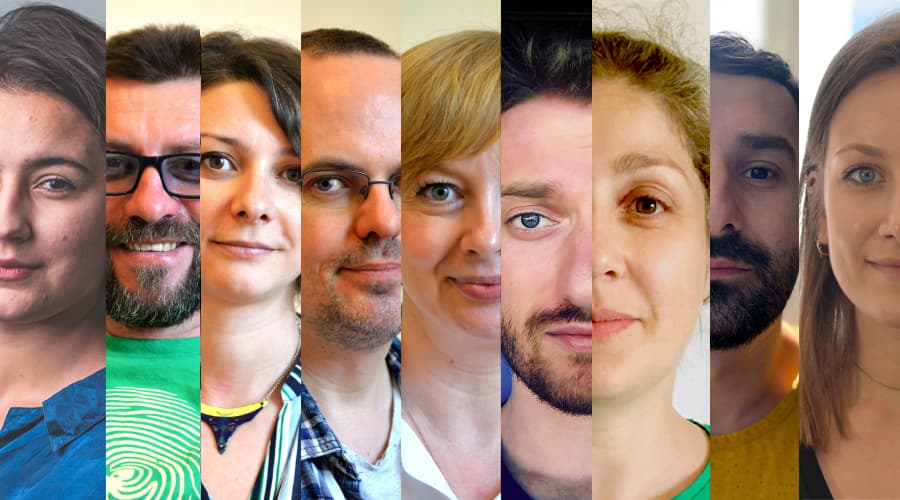
Avem nevoie de ajutorul tău!
Mulți ne citesc, puțini ne susțin. Asta e realitatea. Dar jurnalismul independent și de serviciu public nu se face cu aer, nici cu încurajări, și mai ales nici cu bani de la partide, politicieni sau industriile care creează dependență. Se face, în primul rând, cu bani de la cititori, adică de cei care sunt informați corect, cu mari eforturi, de puținii jurnaliști corecți care au mai rămas în România.
De aceea, este vital pentru noi să fim susținuți de cititorii noștri.
Dacă ne susții cu o sumă mică pe lună sau prin redirecționarea a 3.5% din impozitul tău pe venit, noi vom putea să-ți oferim în continuare jurnalism independent, onest, care merge în profunzime, să ne continuăm lupta contra corupției, plagiatelor, dezinformării, poluării, să facem reportaje imersive despre România reală și să scriem despre oamenii care o transformă în bine. Să dăm zgomotul la o parte și să-ți arătăm ce merită cu adevărat știut din ce se întâmplă în jur.
Ne poți ajuta chiar acum. Orice sumă contează, dar faptul că devii și rămâi abonat PressOne face toată diferența. Poți folosi direct caseta de mai jos sau accesa pagina Susține pentru alte modalități în care ne poți sprijini.
Vrei să ne ajuți? Orice sumă contează.
Share this



